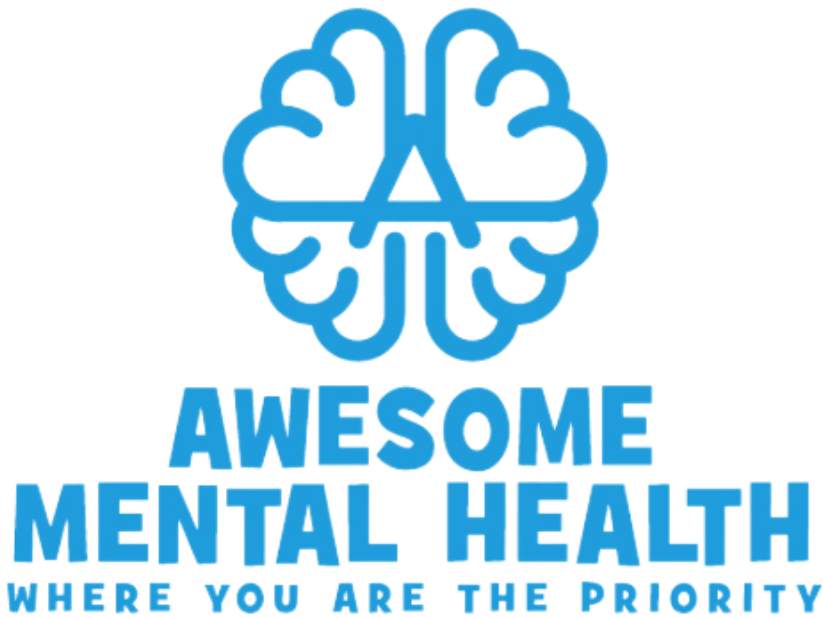Cognitive Behavioral Therapy (CBT) is a well-researched, structured approach to therapy that focuses on identifying and modifying negative thought patterns and behaviors. CBT is widely recognized for its effectiveness in treating a range of mental health conditions, including anxiety, depression, and stress-related disorders. At Awesome Mental Health Nursing Inc, Tina Chen, NP, specializes in using CBT to help patients develop healthier ways of thinking and responding, ultimately leading to positive and lasting changes in mood and behavior.
Signs You May Benefit from Cognitive Behavioral Therapy
CBT is a versatile therapy approach that can benefit individuals struggling with specific mental health conditions or those looking to improve their emotional well-being. Here are some signs that CBT may be helpful:
- Persistent Negative Thoughts: Frequently feeling overwhelmed by negative or unhelpful thoughts.
- Anxiety and Worry: Constant worry or overthinking, especially around certain situations or people.
- Depression Symptoms: Ongoing sadness, low motivation, or feelings of hopelessness.
- Phobias or Fears: Strong, irrational fears that interfere with daily activities or well-being.
- Low Self-Esteem: Persistent feelings of inadequacy or self-doubt.
- Behavioral Challenges: Difficulty controlling certain behaviors, such as avoidance or procrastination.
- Anger and Irritability: Struggling to manage anger or respond calmly in challenging situations.
- Relationship Struggles: Facing conflict or emotional challenges in personal or professional relationships.
Why Cognitive Behavioral Therapy is a Key Treatment Option
CBT provides patients with practical skills to identify and challenge their negative thought patterns and replace them with healthier alternatives. Unlike other therapy methods, CBT is highly structured and goal-oriented, which helps individuals achieve meaningful results relatively quickly. By working with Tina Chen, NP, at Awesome Mental Health Nursing Inc, patients can develop actionable strategies for managing emotional difficulties, improving relationships, and building resilience against future stressors.
CBT’s focus is on empowering patients with skills that address immediate symptoms and provide lasting solutions. It equips individuals with techniques for examining their thought processes and shifting to a more positive, constructive mindset, fostering greater mental clarity and emotional stability.
How CBT Works: Steps Toward a Healthier Mind
At Awesome Mental Health Nursing Inc, Tina Chen, NP, utilizes a structured and supportive approach to CBT. Here’s a breakdown of what patients can expect:
- Initial Assessment and Goal Setting: Tina will begin with an in-depth assessment to understand each patient’s unique challenges, concerns, and treatment goals. This will serve as a foundation for a tailored therapy plan.
- Identifying Negative Thought Patterns: Through guided discussions, patients learn to recognize the thoughts and beliefs contributing to their emotional distress. This self-awareness is a crucial step in creating change.
- Cognitive Restructuring: Patients learn to reframe negative or irrational thoughts into more balanced, realistic perspectives, helping them react differently to life’s stressors.
- Behavioral Strategies: Practical steps are introduced to help patients change behaviors that reinforce negative thought patterns, such as avoiding situations that trigger anxiety or stress.
- Developing Coping Techniques: Tina provides tools and exercises that patients can use outside therapy to manage emotions, handle challenging situations, and reinforce positive thinking.
Proactive Strategies to Sustain CBT Progress
CBT provides skills that can be applied to everyday life, making it a powerful tool for preventing future mental health issues. Patients are encouraged to continue practicing the techniques they learn in therapy, whether through journaling, mindfulness exercises, or continued self-reflection. Regularly applying CBT strategies helps maintain emotional balance, manage stress, and foster resilience in the face of life’s challenges.
Most individuals who engage in CBT experience noticeable improvements in their mental and emotional well-being. With CBT, patients often report feeling more in control of their thoughts and behaviors, as well as increased confidence in managing stressful situations. At Awesome Mental Health Nursing Inc, Tina Chen, NP, is dedicated to helping each patient achieve these positive outcomes, providing ongoing support and guidance for sustained mental wellness.
Frequently Asked Questions
1. How long does a CBT program typically last?
CBT is often a shorter-term therapy, usually lasting between 12 and 20 sessions, though it varies depending on individual needs and goals.
2. Is CBT effective for anxiety and depression?
Yes, CBT is highly effective for treating both anxiety and depression, as it addresses the thought patterns and behaviors that contribute to these conditions.
3. Do I need to practice CBT techniques outside of sessions?
Yes, practicing techniques between sessions is encouraged, as it reinforces new skills and helps you see faster progress.
4. How does CBT differ from traditional talk therapy?
Unlike traditional talk therapy, CBT is structured, goal-oriented, and focuses on developing practical skills to address specific mental health concerns.
5. Is CBT suitable for children and teenagers?
Yes, CBT can be adapted to suit individuals of all ages, and it is often very effective for children and teenagers dealing with anxiety, behavioral issues, and low self-esteem.
Take the First Step Toward a Clearer Mind with CBT
Cognitive Behavioral Therapy offers a practical, results-driven approach to mental health that empowers individuals to transform their thoughts and behaviors. At Awesome Mental Health Nursing Inc, Tina Chen, NP, provides compassionate, tailored CBT services to help you overcome challenges and achieve lasting emotional stability.
If you’re ready to explore how CBT can positively impact your life, contact Awesome Mental Health Nursing Inc, LLC today. Together, we’ll build a foundation for improved mental health and a brighter, more resilient future.










